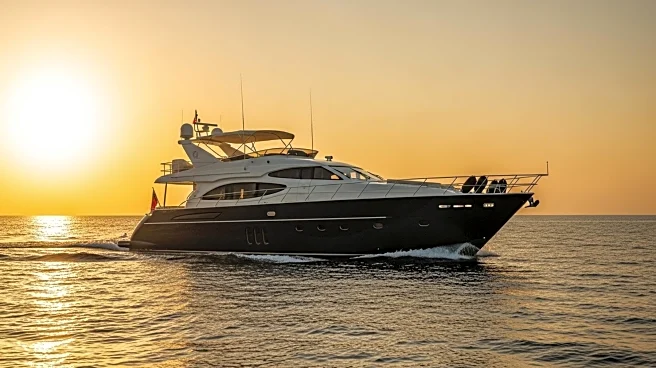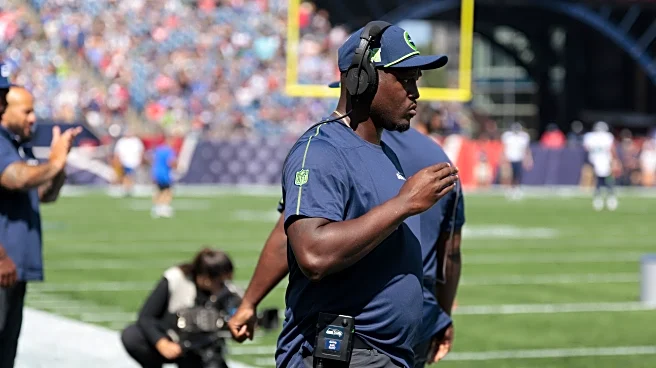What's Happening?
Tiffany Trump, daughter of President Trump, and her husband Michael Boulos spent the summer aboard a luxury yacht owned by Turkish billionaire Ercument Bayegan. This yacht, the Phoenix 2, is linked to Libyan oil interests, raising questions about potential conflicts of interest involving the Trump administration. The yacht was previously chartered for over $1.4 million per week, though it is unclear if the Boulos family paid for their use. Meanwhile, Massad Boulos, a senior advisor to President Trump, has been involved in discussions regarding Libyan energy matters, including a controversial plan to unlock frozen Libyan funds for U.S. companies. These activities have drawn scrutiny due to the complex political situation in Libya, which remains divided between rival governments and is a focal point for international oil interests.
Why It's Important?
The involvement of Tiffany Trump and Michael Boulos in luxury yachting linked to Libyan oil interests highlights potential ethical concerns regarding the Trump administration's dealings in Libya. The administration's efforts to unlock frozen Libyan funds could violate UN sanctions, posing legal and diplomatic challenges. Libya's ongoing conflict and its rich oil reserves make it a strategic interest for various international players, including the U.S. The situation underscores the delicate balance between personal business interests and public policy, with implications for U.S. foreign relations and energy strategies.
What's Next?
The Trump administration may face increased scrutiny over its dealings in Libya, particularly concerning the unlocking of frozen funds. Diplomatic tensions could rise as stakeholders, including the UN and Libyan factions, react to these developments. The administration's approach to Libya will likely be closely monitored, with potential impacts on U.S. diplomatic relations in the region. Further investigations into the Boulos family's activities and their connections to Libyan oil interests may also unfold.
Beyond the Headlines
The intertwining of personal and political interests in the Trump administration's dealings with Libya raises broader ethical questions about governance and transparency. The situation may prompt discussions on the influence of private business interests in shaping U.S. foreign policy, particularly in conflict zones. Long-term, this could lead to calls for stricter regulations and oversight to prevent conflicts of interest in government dealings.










